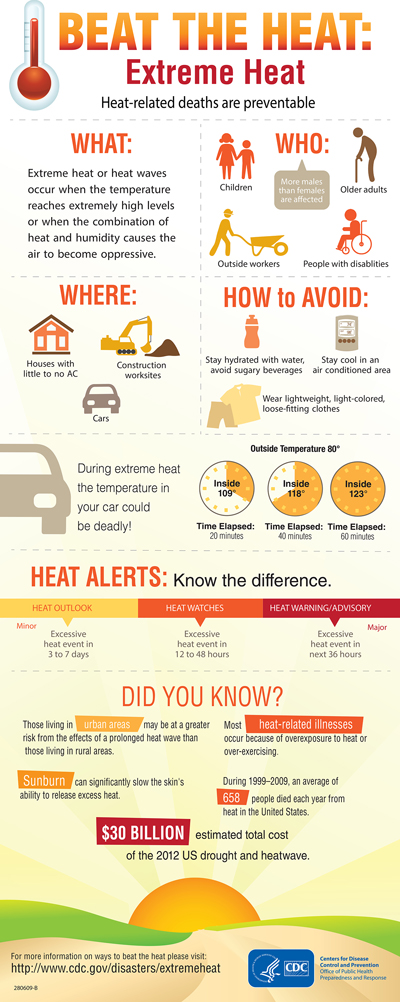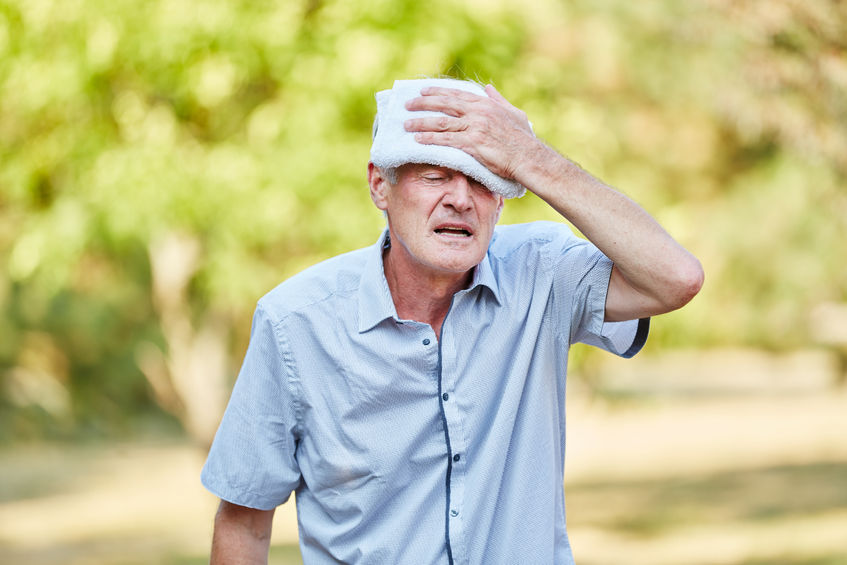Summer fun can turn dangerous, or even deadly, if you become overheated. Did you know that, according to the Centers for Disease Control and Prevention (CDC), about 618 Americans are “killed by extreme heat every year”? [1] As temperatures rise, so too must our diligence in protecting ourselves and our loved ones.
Heat Safety Tips
The American Red Cross [2] lists the following heat safety tips :
- Stay hydrated by drinking plenty of fluids. Avoid drinks with caffeine or alcohol.
- Avoid extreme temperature changes.
- Wear loose-fitting, lightweight, light-colored clothing. Avoid dark colors because they absorb the sun’s rays.
- Slow down, stay indoors and avoid strenuous exercise during the hottest part of the day.
- Postpone outdoor games and activities.
- Use a buddy system when working in excessive heat. Take frequent breaks if working outdoors.
- Check on family, friends and neighbors who do not have air conditioning, who spend much of their time alone or who are more likely to be affected by the heat.
- Check on animals frequently to ensure that they are not suffering from the heat. Make sure they have plenty of cool water.
- If someone doesn’t have air conditioning, they should choose places to go to for relief from the heat during the warmest part of the day (schools, libraries, theaters, malls).
Those who work outdoors should exercise additional caution. The Occupational Safety and Health Administration says:
“Exposure to heat can cause heat cramps and rashes. The most serious heat-related disorders are heat stroke and heat exhaustion. Symptoms include confusion; irrational behavior; loss of consciousness; hot, dry skin; and abnormally high body temperature. Drinking cool water, reducing physical exertion, wearing appropriate clothing and regular rest periods in a cool recovery area can lessen the effects of working in summer heat.” [3]
The CDC also has a great infographic that encourages extreme heat safety that you can share with your family and friends:

(Source: https://www.cdc.gov/phpr/infographics/beattheheat.htm) [4]
Resources
- https://www.cdc.gov/disasters/extremeheat/index.html
- http://www.redcross.org/news/article/Red-Cross-How-to-Stay-Safe-in-Hot-Weather
- https://www.osha.gov/news/newsreleases/trade/06172008
- https://www.cdc.gov/phpr/infographics/beattheheat.htm

